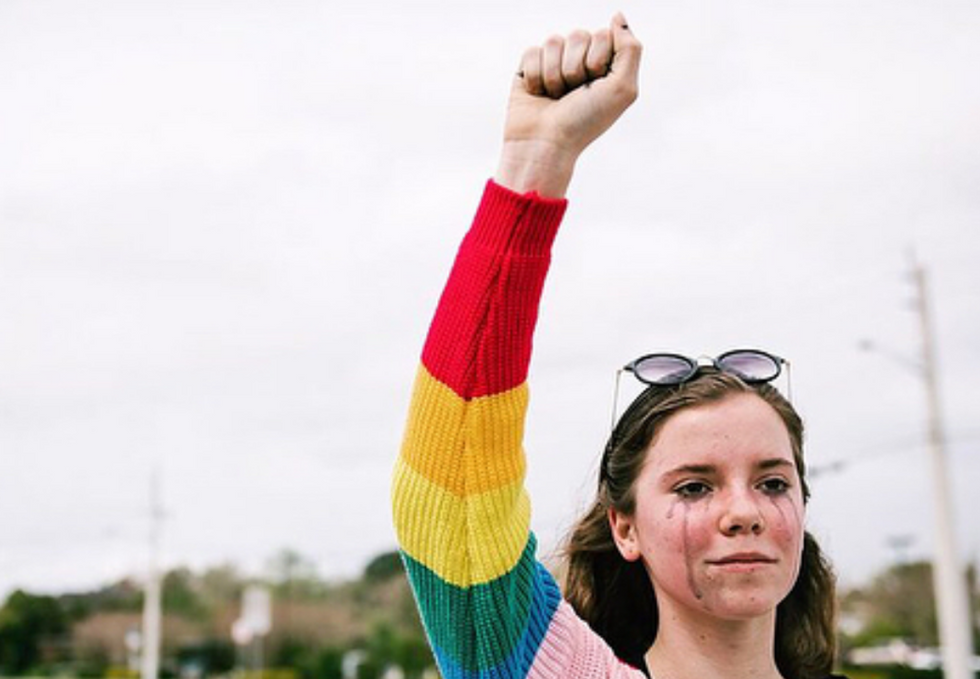I was sitting in Algebra class at 1:58 that day. That day when my principal announced over the loudspeaker, voice timorous, audibly expressing his earnest trepidation, attempting to coherently address the situation. That day he informed my entire high school that moments ago, a mass shooter was active in the elementary school just miles from our own. That day he ended classes nine minutes early to allow us to sit silently and pray for those affected by Sandy Hook, despite the uncertainty of who, what, when, how?
That day that a sadistic shooter robbed the lives of twenty-six innocent human beings.
The following day, every school within my school district was forced into a mandatory lockdown, for a man at the nearby train station was holding an unidentifiable object. We feared it was a gun. A bomb. A weapon.
It was an umbrella.
“Ignorance is bliss” is an irrelevant cliché, inapplicable to my generation. We have never been indulged by the romanticism of ignorance, never enjoyed naivety of the unknowing youth.
In its place has been violence. School lockdown drills and school shootings. So. Many. School. Shootings. We’ve lived through 9/11. Observed animosity towards the LGBTQ community. Police brutality. ISIS. Internalized racism. Nuclear intimidation. We have not had the privilege of being young, of being blissfully ignorant, nor happily naive. Instead, we know it all.
“Peace” is a foreign concept, unfathomable in this current day. Rather, violence and its cohort, fear, are unceasing.
Since the 1950s violence has morphed from an action into a state of being, whereby there is no finality in sight. It is here. It is present. It persists. It is permanent. Violence is a status, a perpetual scare. Violence has a grip on us.
We have been desensitized to this violence - violent acts are normalized in our culture: video games, relationships, masculine hegemony, cinema, terrorism, health care, proliferation in gun violence, abuse in the workplace…the list is boundless.
We are socialized into accepting that violence is an ordinary aspect of our lives, a “thing” that we are incapable of circumventing.
As if it were street traffic or making your bed in the morning: routine commonalities.
Violence is all that we have known.
Generation Z, specifically, has experienced a life of violence. We have been exposed to interminable threats, brutality, deterioration, insecurity, and fear. Quite frankly, we are sick of it. We are sick of receiving updates to our iPhones about another mass shooting. We are sick of a political system that prioritizes the possibility of a hacked election over urgent social movements. We are sick of watching agonizing videos of police brutality. We are sick of being prepared for war and for an attack.
We are sick of being scared.
We are ready to fight back.
If nobody else will make changes, we will.
The students of Stoneman Douglas High School have sparked the largest social movement since the 1970s. These young students represent the power that this generation has, the power that has been building up to confront the tsunami of violence, the power that is and will continue fomenting revolution.
Violence should not be a state of being. It should not be acceptable and it should never be the status quo. This generation will be the one to redeem human power and put violence into its place, out of the realm of cultural normalcy.








 The minimum wage is not a living wage.
StableDiffusion
The minimum wage is not a living wage.
StableDiffusion
 influential nations
StableDiffusion
influential nations
StableDiffusion










